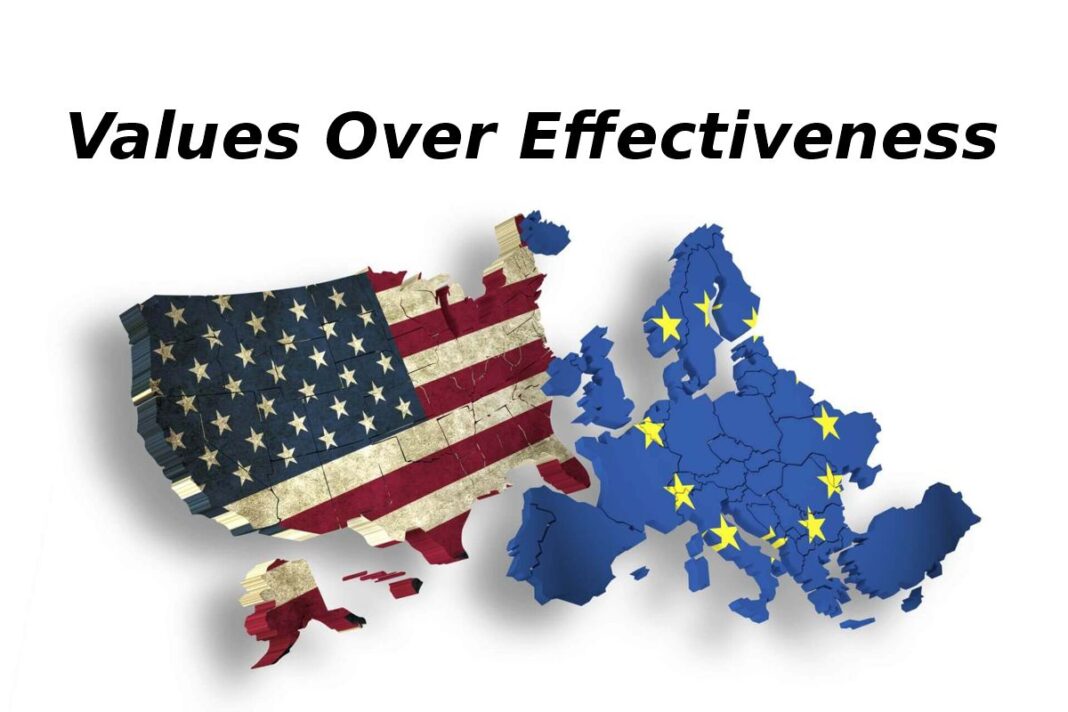The prevailing understanding in American society is that a person’s politics is a direct reflection of core individual values. This framework is often valid for understanding identity in the United States.
For instance, American conservatives often ground their political stances on social issues, such as those concerning the LGBTQIA+ community, in deeply held values. Similarly, the American left’s support for transgender rights stems from a deeper belief in the importance of tolerance and inclusion, which permeates their daily lives.
Contrasting Political Frameworks
In Europe, politics does not function as a mirror in the same capacity. A person’s support or opposition to a specific policy or issue is not necessarily rooted in a value-based understanding. For example, a European’s view on wind turbines wouldn’t be based on a profound belief in preserving nature, nor would it be dismissed as a hoax intended to prevent national self-sufficiency.
Instead, the European conversation centers on an effectiveness assessment: Is the wind turbine an effective means of generating electricity, and are those energy benefits worth the environmental trade-offs? A conservative might argue it’s ineffective, while a leftist may generally support it for its environmental benefits. The crucial difference is between truth claims and an effectiveness assessment.
The Role of “Truth” in U.S. Politics
In American politics, both the left and the right frequently employ the term “Truth.” A political statement often becomes “my truth.” Debates around abortion in the U.S. become a clash between the “truth” that a fetus is alive before conception versus the “truth” that women have inherent rights to their own bodies and the decisions concerning them.
In Europe, the question shifts to “How can the government be effectively used to avoid harm?” This leads to varied policy views:
Stopping abortion to avoid harm to the unborn.
Regulating abortion so it is a procedure of last resort.
Allowing women to choose what best avoids harming their rights.
This pragmatic view of how authority should be utilized—rather than a simple moral imperative of doing what is right—defines the European debate. This doesn’t mean European governments lack moral grounding, but that the culture limits the government’s moral authority while granting it significant economic authority. This is the inverse of a common American view, particularly among conservatives, that the government should avoid economic intervention but safeguard traditions and cultural values.
Historical Roots of the European Social Contract
The European model’s genesis can be traced back to the Roman Empire, where most citizens operated under two systems of law: civil law (of the Empire) and local law (often based on religion). Facing a massively diverse religious empire, Rome found it prudent to allow people to manage their unique cultural and religious practices, generally intervening only in civil matters like taxation. The New Testament, for instance, shows the Pharisees holding authority over religious matters with limited Roman intervention, which allowed them to petition for Jesus’ crucifixion.
When Christianity became the official of Rome this informal arrangement was dissolved with local religious authoritys. Even then the divide in authority between the Emperor civil authority and Pope spiritual was set . In a informal arrangement which reconstituted the same relationship with less moving parts .
The conflict of authority following the fall of Rome and the establishment of medieval kingdoms by Germanic tribes, who largely adopted Christianity, a major conflict arose: Who held authority—the Church or the Kings? This led to devastating conflicts, such as the bloody Wars of the Guelphs and Ghibellines in 12th-century Italy, which pitted loyalty to the Holy Roman Emperor/Kingdom of Germany against loyalty to the Pope.
These struggles eventually resulted in a peace contract that established a division of temporal (civil) and spiritual authority. The king was responsible for matters not divine in origin (e.g., taxation—”giving unto Caesar what is Caesar’s”), while the priest retained authority over personal morality.
Crucially, these rules were never based on a value consensus. Monarchs and the Church (through mechanisms like the Inquisition) enforced rules through force and conditioning, with no concept that citizens must agree with the rules to follow them.
The Reformation and the Void of Moral Authority
The Reformation shattered this pact by asserting that spiritual authority belonged to God alone, not the priests. This religious conflict led to horrific bloodshed, exemplified by the Thirty Years’ War (which consumed Central Europe and may have cost a million lives).
In the aftermath, religious authorities were largely rebranded as spiritual advisors, leaving civil authority intact but stripped of the moral authority that the priests once held. This historical process fundamentally reshaped European culture, instilling the belief that personal matters of morality were for individuals to decide in this vacuum of public moral authority.
The Culture of Unfettered Freedom of Belief
After a history marked by every kind of persecution (religious, racial, political), the idea of unfettered freedom of belief took deep root in Europe. The core social norm, “you are allowed your beliefs, let me have mine,” became a lesson which was core to modern Europe .
The European concept of freedom of belief extends beyond the right to a specific God or transcendent force; it is a freedom to believe what you want as long as it doesn’t harm others.
The Contrast in National Foundations
In America, there is an expectation that all people must share American values, as the USA is a nation founded on a shared idea, not a shared language, ancestry, or religion. European nations, however, are typically founded on shared ancestry, language, institutions (like a monarchy), or historical happenstance.
Herein lies the difference in the social contracts:
America requires shared values.
Europe generally just asks you to follow the rules, and the rest is up to you.
The rules, though now often decided democratically, are still based on institutional loyalty. The rules are the rules that effectively solve problems rather than fit my morality. This social contract, born largely of historical accident, has delivered a degree of peace and minimized religious and political strife in a way Europe had not previously known.








